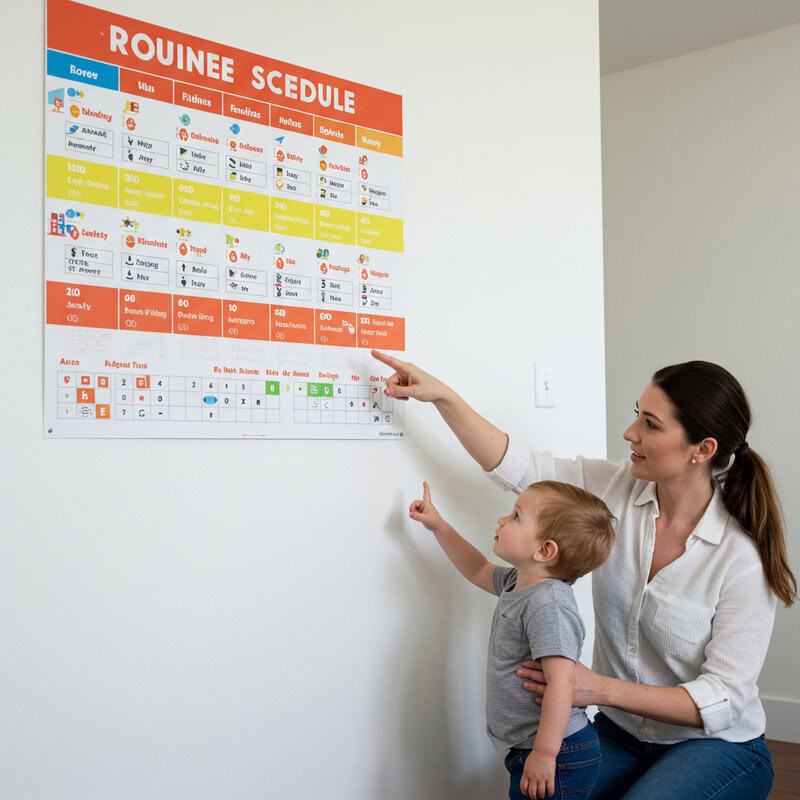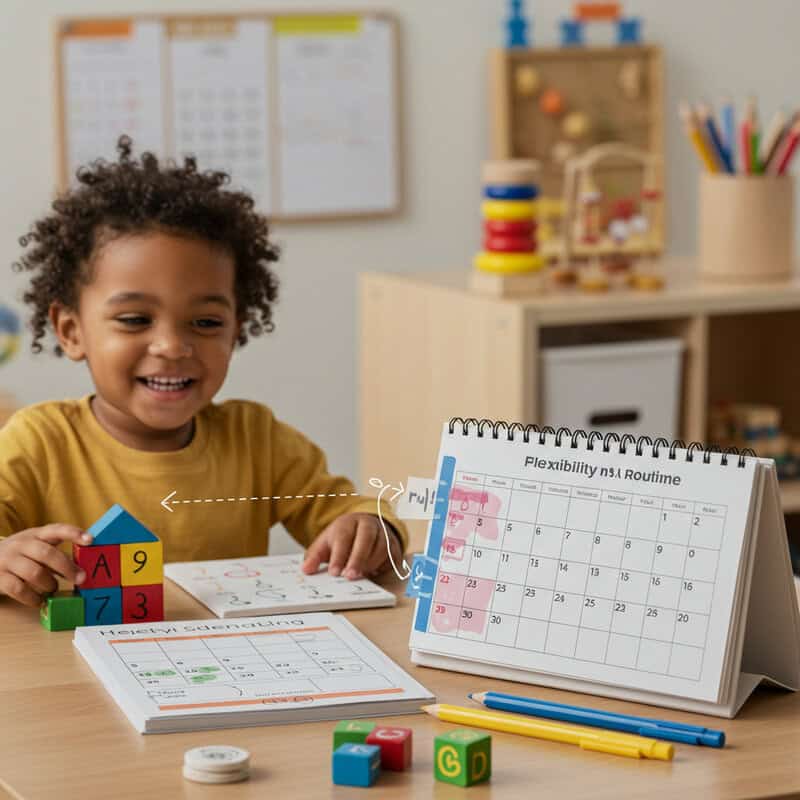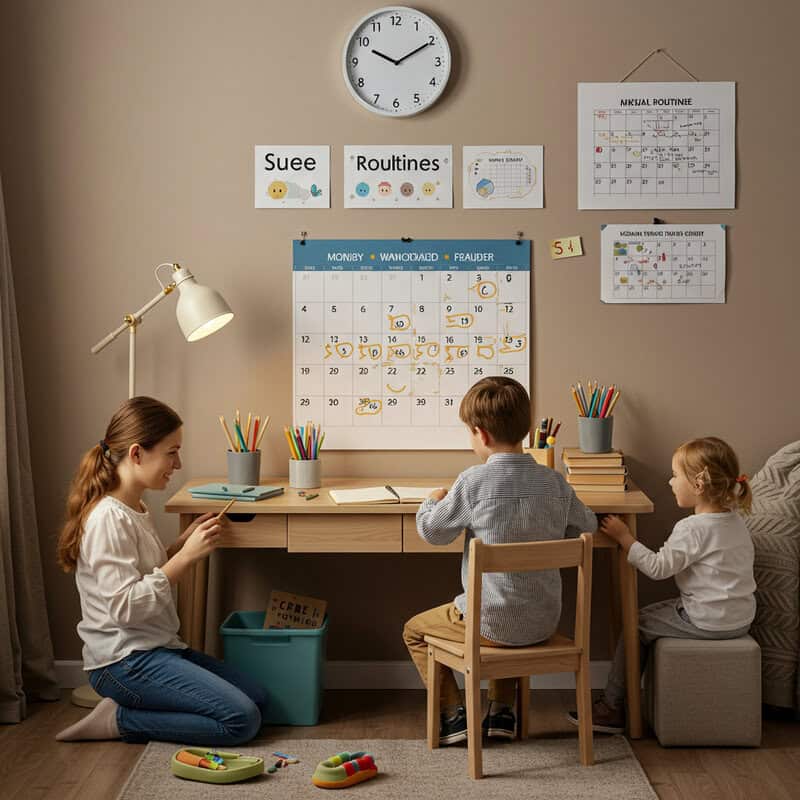Communicate Changes Clearly and Positively

When introducing new routines, it’s essential to explain changes to your child in a clear and positive manner. Use simple language and discuss the benefits of the new schedule, inviting your child to ask questions or share feelings. Involving children in planning—for example, letting them choose the order of certain activities—can increase their sense of control and cooperation.
Experts at Raising Children Network recommend preparing children in advance and acknowledging their emotions to ease transitions and reduce resistance, fostering a more successful adjustment to new routines.




